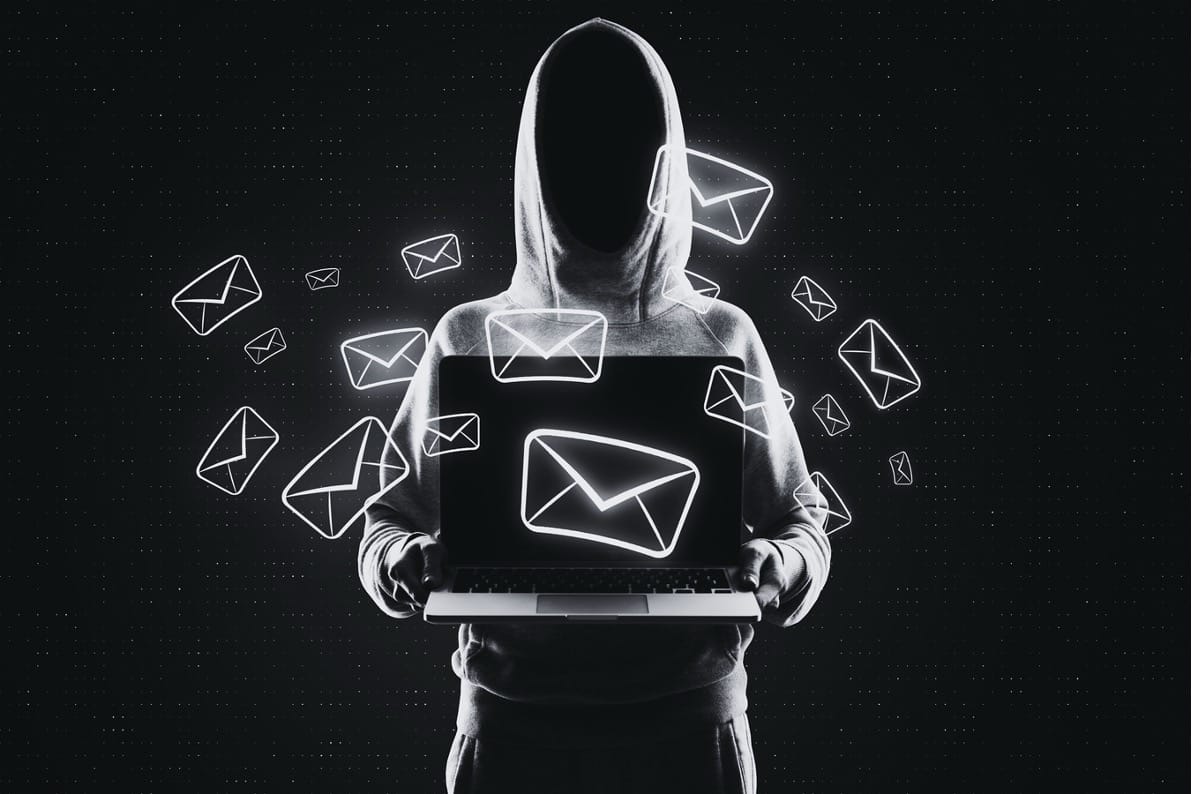Contributed by: Matt Cooper, Licensed Private Investigator, Former Law Enforcement Detective
October marks Cybersecurity Awareness Month, and this year, a particularly concerning threat has emerged that calls for heightened vigilance: Gmail account takeover scams powered by artificial intelligence (AI). These sophisticated attacks demonstrate how malicious actors are increasingly leveraging AI technologies to launch more convincing and damaging campaigns, making it critical for businesses, individuals, and security professionals alike to stay informed and take action.
In this article, we will dive into the recent developments of Gmail account takeover scams, explore how AI is enhancing these cyber threats, and offer practical steps you can take to protect yourself and your organization. Special thanks to Android Authority for their detailed report on the emerging risks related to AI and Gmail.
What Is a Gmail Account Takeover Scam?
A Gmail account takeover scam occurs when a hacker gains unauthorized access to a user’s Gmail account, often through phishing techniques or compromised credentials. Once inside, the attacker can wreak havoc: sending malicious emails to contacts, stealing sensitive information, or using the account to launch further attacks. Traditionally, these scams relied on generic phishing techniques, but the game has changed.
With AI technologies, cybercriminals can craft more convincing emails, automate responses, and bypass many security filters that previously protected users. The advent of AI in cybercrime is creating a new landscape where account takeover scams are more difficult to detect and prevent.
How AI Is Supercharging Account Takeovers
AI’s ability to analyze large sets of data, mimic human behavior, and learn from patterns has made it a powerful tool for both good and bad actors. Here’s how AI is contributing to the success of Gmail account takeover scams:
- Highly Personalized Phishing Emails
Traditional phishing attempts often stand out due to poor grammar, spelling errors, or awkward phrasing. AI, primarily through natural language processing (NLP), can generate highly personalized and grammatically flawless emails that appear to come from trusted contacts. By analyzing social media profiles and previous email communications, AI tailors phishing messages that are much harder for victims to detect as fraudulent.
- Automated Responses to Security Challenges
Many modern email services have built-in mechanisms to detect suspicious activity, such as unusual login locations or changes in user behavior. AI-driven bots can automatically interact with these security challenges, offering plausible answers to bypass multi-factor authentication or security questions. This ability to quickly adapt makes it easier for cybercriminals to maintain access to compromised accounts.
- Scaling the Attack Effortlessly
Before AI, phishing and account takeover campaigns were labor-intensive. Attackers had to craft each phishing email, manage responses, and manually attempt account logins. With AI, this process is automated, enabling attackers to target thousands of accounts with minimal effort simultaneously. AI tools allow cybercriminals to launch mass campaigns and continuously refine their tactics based on which approaches are most successful.
- Deepfakes and Voice Cloning for More Convincing Attacks
One of the most alarming uses of AI is generating deepfakes—realistic audio or video imitations of individuals. Imagine receiving a voice message from your boss or a close colleague, only to discover later that it was generated by an AI program. This level of deception makes phishing attacks more convincing, increasing the likelihood that targets will fall for them.
Recent Incidents and Implications for Businesses
Several high-profile cases of Gmail account takeovers have recently come to light. For instance, according to the article by Android Authority, attackers have started targeting users by sending phishing emails that claim their Gmail account has been compromised. Once a user clicks the link, they are directed to a fake login page where they unknowingly give the attacker access to their credentials. From there, attackers can steal sensitive information or use the compromised account for further attacks, potentially spreading malware or other malicious software.
For businesses, these AI-enhanced scams present significant risks. A compromised employee email account can lead to the theft of intellectual property, financial loss, or damage to the organization’s reputation. Additionally, such takeovers can facilitate insider threats, where attackers use the account to impersonate trusted employees and gain further access to sensitive systems or data.
Mitigation Strategies: Protecting Yourself and Your Organization
With AI-enabled cyber threats becoming more sophisticated, it’s crucial to adopt advanced strategies to safeguard against Gmail account takeovers. Here are some actionable steps to bolster your defenses:
- Enable Two-Factor Authentication (2FA)
Two-factor authentication (2FA) remains one of the most effective ways to protect your Gmail account. By requiring a second form of verification, such as a text message or an authentication app, 2FA adds an extra layer of security that is harder for attackers to bypass—even with AI tools at their disposal.
- Use Password Managers
Password managers help generate and store complex, unique passwords for each account you use. By avoiding the reuse of passwords across multiple sites, you reduce the risk of a single compromised password leading to widespread access across your digital life.
- Be Wary of Phishing Attempts
Even though phishing emails are becoming harder to detect, you can still protect yourself by staying cautious. Never click on links in unsolicited emails, and always double-check the sender’s email address. If you receive a suspicious email about your Gmail account being compromised, go directly to Gmail’s official website instead of clicking on any links.
- Invest in AI-Powered Cybersecurity Solutions
As cybercriminals harness AI to attack, cybersecurity companies are also using AI to defend. These solutions can automatically detect unusual behavior in email accounts, flagging potential account takeovers before they escalate. AI can help in identifying patterns of behavior that signify fraudulent activities, providing early warnings for users and organizations.
- Regularly Monitor Account Activity
Keep a close eye on your Gmail account activity. Google offers tools that allow you to review recent login activity and monitor the devices that have accessed your account. If you encounter any unfamiliar logins, change your password and update security settings immediately.
- Educate Your Team
Cybersecurity awareness training is crucial. Ensure your employees are up to date on the latest phishing techniques and know how to identify suspicious communications. Regular training can significantly reduce the risk of account takeovers within your organization.
Final Thoughts
As Cybersecurity Awareness Month shines a spotlight on the growing challenges in digital security, it is clear that AI is both a boon and a bane in the cybersecurity landscape. While AI can help protect us, it is also empowering cybercriminals to launch more sophisticated attacks. Gmail account takeover scams are just the tip of the iceberg, but by staying informed and proactive, we can mitigate the risks they pose.
At LCG Discovery Experts, we specialize in helping businesses strengthen their cybersecurity posture. Whether you need assistance with digital forensics, threat assessments, or incident response, our team of experts is ready to support your organization in navigating today’s evolving cyber threat landscape.
Sources:
-Android Authority, “Gmail Account Takeover Scam Uses AI to Fool You”
-Google Security Blog, “Keeping Your Gmail Safe: Tips and Tricks for Account Security”
If you have been hacked, here is a source on how to begin reclaiming your Gmail account: Recovering Your Google Account







